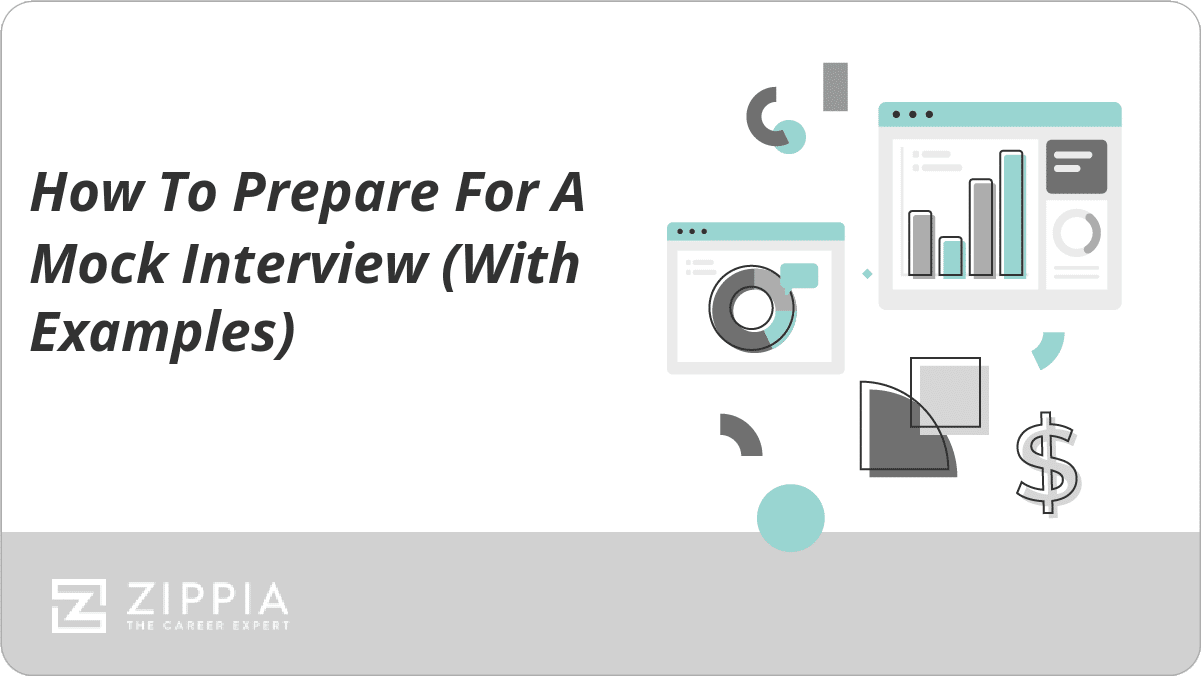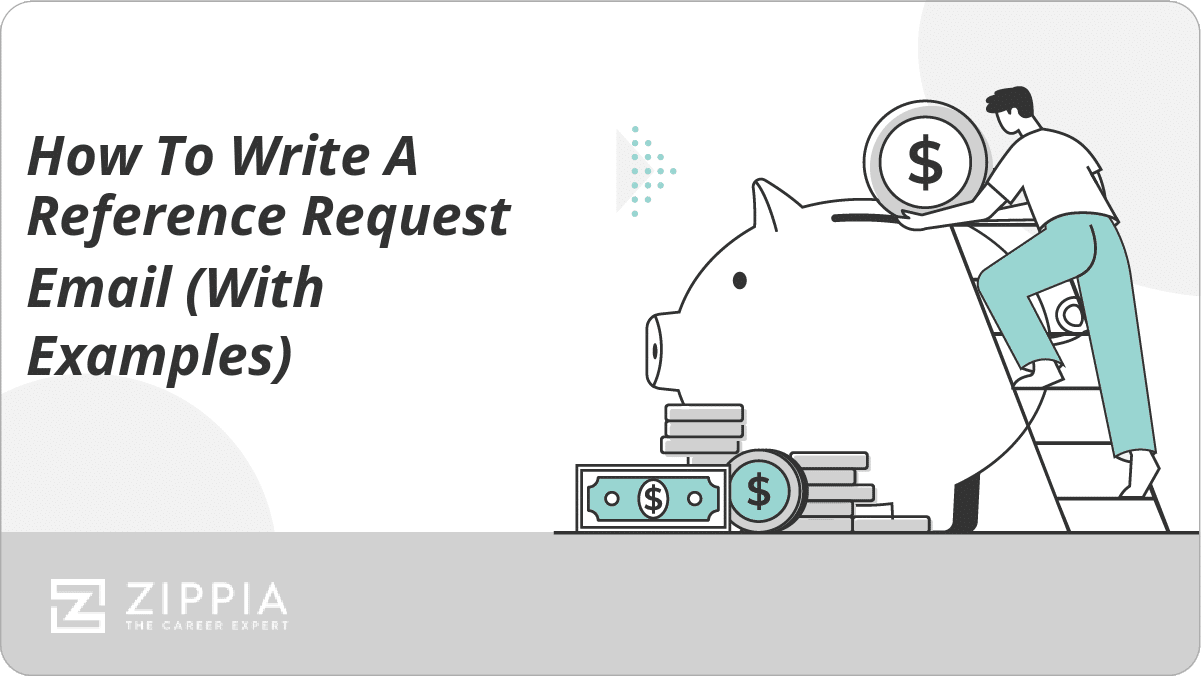- Interview Prep
- Star Method For Answering Questions
- Interview Preparation Checklist
- Star Interview Questions
- Words To Use In An Interview
- Mock Interview Preparation
- How To Make A Good Impression
- Bring Writing Samples
- How To Relax Before An Interview
- Interview Coaching
- Common Video Interview Mistakes
- Common Phone Interview Mistakes
- How To Ace Your Interview For A Remote Job
- Good Weaknesses For A Job Interview
- Good Strengths For A Job Interview
- How To Prepare For A Phone Interview
- Talk About Being Laid Off
- How To Decline An Interview
- How Early Should You Arrive For An Interview
- Types Of Interviews
- Communication
Find a Job You Really Want In
As exciting as it can be to get the phone call or email to move forward with an interview, the thought of the interview stage can be somewhat intimidating. That’s why taking the time to practice and learn how to answer certain interview questions can be incredibly beneficial.
In this article we will go over understanding what a mock interview is, learning how to prepare, and reviewing examples of common interview questions will help you get rid of any lingering nerves.
Key Takeaways:
-
The best way to get better at any skill is to practice, and the more you go over your responses the more natural you will sound in a real interview setting.
-
Mock interviews are an excellent way to boost your confidence and prepare you for interview questions, whether behavioral, situational, or skills-based.
-
When setting up a mock interview, make sure you pick the right person who will give feedback and is able to give an assessment to your skills and strengths.
-
A mock interview should be like the real interview, but if you mess up it won’t effect you getting the job at hand.

How to Prepare for a Mock Interview
A mock interview requires the same level of professionalism you would exhibit during a real interview. That means that you will need to make the same considerations when it comes to how you prepare. Use these steps as a checklist:
-
Select a professional location. Your mock interview environment should be as close to your actual interview setting as possible. If you are using a career counselor or other professional at a designated center, they will specify the location.
-
If this is at a traditional office location, you should anticipate that there will be a desk or table where you are able to be face-to-face with the interviewer.
-
For a phone mock interview, make sure on your end that you are in an area where you will get good reception. There should be no background noise and no potential distractions.
-
These are similar points to keep in mind for a video mock interview. Set up your computer or tablet in a tidy, quiet area of your home. Make sure your laptop is charged and test the camera and microphone beforehand to avoid any glitches.
-
For either a phone or video mock interview, make sure to practice in the same place where you plan on setting up for the actual interview. That way, you can make sure the reception works or that your background and lighting look good.
-
-
Prepare the interviewer. You should also give your mock interviewer background on the position or field you are interested in prior to the interview. This way, they can more easily come up with questions that mimic what your potential employer might ask.
If your mock interviewer is just a friend or family member without any relevant knowledge about the job, company, industry, or even the interview process, prepare questions for them. That way, they can simply focus on how your answers sound rather than trying to improvise and judge at the same time.
It’s also a good idea to provide your mock interviewer with a job description and discuss the details of your potential job more thoroughly. This will at least give them a basic understanding of what to look for in your answers.
-
Prepare yourself. Make yourself a list of common interview questions and answers. You should go over these prior to the mock interview. You want to have thoughtful, concise answers during a job interview, and rehearsing them can help to improve your delivery.
For help coming up with questions, check out the top 50 most common interview questions. Then, check for job-specific interview questions. For example, if you’re a software engineer, we have sample questions and answers here. Zippia has practice interview questions and answers for many of the most common job titles.
-
Dress professionally. First impressions are everything, and you want to wow your mock interviewer just as you would your recruiter. Wear professional attire that matches the work culture of the company you applied with. This is also one of the criteria that the mock interviewer will be providing feedback on.
-
Get there early. A familiar saying goes, “if you’re on time, you’re late”. Arrive 10–15 minutes early to your interview to show your mock interviewer that you are punctual, something that your hiring manager will also appreciate.
-
Bring a notepad. The goal of a mock interview is to get constructive feedback in preparation for a real interview. That means you should bring a professional notebook or portfolio that you can take notes in. This makes it easy to review the points that were discussed during the process.
-
Record the interview. Regardless of your interviewer or the format of your mock interview, you should record the experience. Your mock interviewer may be a professional who’s able to provide detailed notes or just a friend who can help you get the interview jitters out.
Either way, their constructive criticism won’t catch everything. Watching and listening to your performance can help you notice body language errors, nervous lingual ticks (em, uh, etc.), and the overall tone and speed of your voice.
With a solid understanding and background of the process, it’s time to dive into how to navigate your mock interview. You should be well equipped with examples and be comfortable setting up your own interview with a friend or family member.
How to Answer Mock Interview Questions (With Example Answers)
Answering mock interview questions is no different than answering regular interview questions (except the stakes are much lower). Let’s start with a basic warm-up question that’s almost guaranteed to come up during your real interview.
I’ve been working in IT for the past 2 years since graduating from UVA with a degree in computer science. I’m an intensely curious person who’s always learning something new. Right now I’m working on advancing my Python skills further to help automate a billing system for a small business my friend just kicked off. I hope to get more into software development, and this position would be an excellent way to leverage my current skill set while picking up on new techniques.
-
You almost never need to ramble on for more than a minute when you’re answering any interview question. Brevity is an important part of professional communication. Notice how the above candidate quickly describes their past, present, and hopeful future in four short sentences.
You get feel for their hard skills, soft skills, and career goals all in 30 seconds. That’s what a good answer to “tell me about yourself” should accomplish.
-
Practicing basic interview questions like this is important, but it’s equally vital that you prepare for behavioral interview questions. These questions ask about your past behavior in professional settings. Hiring managers and recruiters love asking these questions because they help them predict how well you’d fit in with the existing team.
-
Behavioral interview questions often start with phrases like “tell me about a time” or “give me an example of a time.” The best way to answer behavioral interview questions is by using the STAR method.
STAR stands for Situation, Task, Action, Result, and it’s a great way to organize concise, coherent stories.
Let’s take a look at a common behavioral question and an answer that uses the STAR method:
Tell me about a time you went above and beyond.Situation: My job as a copy editor for XYZ Daily was never slow, but the pace really picked up when we upgraded our software and printing hardware in the same month.
Task: My boss asked me to help train staff on how to operate the new software, in addition to my normal duties.
Action: I first met with different department heads to find out the major pain points for each team. Then, I drew up a FAQ document addressing the most common issues. People were having a tough time with written instructions, though, so I took a few hours after work that night to record a video tutorial, where I showed precisely how to perform the most common functions.
Result: While management expected it to take several weeks for everyone to become acclimated, most teams were fully functional by the end of the week after seeing my video tutorial. My boss was really impressed, and often came to me when she needed help creating training materials after that. -
The goal of the STAR method is to help keep your stories short and to the point. When you’re performing your mock interview, be sure that your interviewer helps point out parts of your story that are unclear or unnecessary.
-
Practice several different stories about your accomplishments, failures, resiliency, etc. You can’t know every behavioral interview question that might get thrown at you, but the more stories you have, the better odds you’ll have one that fits the question.
Example Mock Interview Questions
Your mock interview questions will differ based on your goals. For example, if you are doing a practice interview to gain more overall experience, your interviewer will likely stick to general interview questions. Some of these might include:
-
Can you tell me about your most recent job experience?
The goal of your answer is to contextualize your recent professional experience as naturally leading to the position you’re applying for. For example, if you were a sales rep, but are applying for a sales manager role, your ideal answer should touch on elements of your job that were supervisory.
-
What are your strengths and weaknesses?
Make sure that your strengths are aligned with the necessary qualifications outlined in the job description.
For a weakness, don’t try the cheesy “my weakness is actually a strength” or “perfectionism” answers — hiring managers sigh and roll their eyes every time they hear some BS like this. Instead, give a genuine weakness that you’re actively improving, and outline the steps you’re taking to work on it.
-
Where do you see yourself in five years?
Whenever you’re asked about your career goals, make sure that your answer includes the job you’re applying for. For example, if you’re a tax accountant applying for an accounting manager job, you might say that you hope to be a division controller in the next five years.
Avoid answers that place you in a completely different industry, field, or region in the next five years.
-
This is where your research on the company comes in. Your mock interviewer won’t have the insight to know what a genuine interviewer will be looking for here (even if they are a professional).
It’s up to you to find out the company’s mission statement, values, the tone they take when communicating with the public, and recent news regarding the company. Make sure your answer is about more than just perks and opportunities for you. Bring some focus on helping the company achieve its goals.
-
What are your salary expectations for the position?
Perform salary research before the interview. Be sure to factor in experience level, geographical region, and job title.
-
What makes you a perfect fit for the role?
Again, the job description is your friend here. Any keywords that are emphasized here are obviously important to being seen as a “perfect fit for the role.”
It’s also possible that you already have a job interview lined up and are doing a mock interview beforehand. In this case, understanding and preparing your mock interviewer with information on the position and company is crucial.
In any scenario, you need to furnish a copy of your resume. Additionally, you’ll want to provide the job description and any other details you have on the company.
This prep will allow the interviewer to closely cater questions to the role and also try and match the company culture. Your interviewer may also look at job review sites to get a better idea of common questions and employee feedback.
What Is a Mock Interview?
A mock interview is a staged job interview that allows a job seeker to mirror the real experience. During the mock interview, the interviewee will be able to practice providing multiple answers to potential questions, giving them the chance to find the best fit.
This is particularly helpful as there are certain hings a candidate should never say in an interview, and rehearsing difficult questions can help mitigate the risk. The candidate is also able to become more familiar with a professional interview setting, whether online, in-person, or via telephone.
When it comes to who will play the role of interviewer, you have unlimited options. While a professional such as a student or career services counselor is the best option due to their expertise and knowledge of career development, anyone can conduct the interview.
You just want to make sure that the person you choose will be able to provide feedback on both your strengths and weaknesses.
How to Set an In-Person Mock Interview
Though using a career services counselor is the first place most job-seekers look, there may be times that you opt to use a relative or friend. These are both great options for mock interviews; there are just a few things to keep in mind when setting up this type of in-person mock interview.
First and foremost, make sure to choose the right person. Your friend or family member may not be a career professional, but they should still be knowledgeable on the job and your goals. They should be a trusted source of feedback, being able to assess your strengths and areas of opportunity after the interview has concluded.
After you have selected your interviewer, it is your responsibility to provide them with your resume and a syllabus or list of interview questions. This way, you know that they are asking targeted questions that will help you with your interviewing skills.
Lastly, treat your scheduled mock interview as if it were real. You want to get the most out of the experience and using the same level of professionalism is key.
Online Mock Interview Options
There are a few different ways that you can have an online mock interview. The ideal online program will allow you to have a live, virtual interview with a career development professional.
This scenario is the most similar to a real interview that an employer might conduct over Zoom or Google Meet. Over a recorded meeting room, the interviewer will ask you questions, you’ll respond with your answers, and then the interviewer will provide feedback after review.
Another type of online mock interview is with a pre-recorded mock interviewer that asks questions from a pre-determined bank. These questions may be general or related to a specific career path. You can then answer each question and the program will send you your evaluation within a specified timeframe.
You might also opt to do a mock interview online that involves you giving responses that are verbal, written, or a combination of both.
Why Should You Do Mock Interviews?
Even for the most seasoned interviewees, mock interviews are always beneficial. The practice rounds do much more than just prepare you for an interview.
-
Everyone has their strengths and areas of improvement. You may be able to recall rehearsed questions easily, but how do you handle tricky and less expected questions? You could be an effective communicator overall, but how is your body language during an interview?
-
A mock interview gives you the benefit of honing in on specific areas that you may not realize are lacking. This is also where selecting the right interviewer comes into play, as they should have this type of foresight.
-
Unlike your actual interview which is final, a practice interview gives you the chance to strategize. Based on the success of how you answer your questions, you might realize that you are not describing yourself as favorably as you should. You might find that you should focus more on transferable skills, or perhaps your accomplishments versus other aspects to have a stronger response.
-
You should do mock interviews to give you the best chance possible at having a good interview with a recruiter. Practice never hurts, and it’s an excellent way to familiarize yourself with being in an interview room.
-
As long as you make sure that your mock interview is as close to the real thing as possible, you will gain plenty of helpful insight into yourself as a job candidate.
- Interview Prep
- Star Method For Answering Questions
- Interview Preparation Checklist
- Star Interview Questions
- Words To Use In An Interview
- Mock Interview Preparation
- How To Make A Good Impression
- Bring Writing Samples
- How To Relax Before An Interview
- Interview Coaching
- Common Video Interview Mistakes
- Common Phone Interview Mistakes
- How To Ace Your Interview For A Remote Job
- Good Weaknesses For A Job Interview
- Good Strengths For A Job Interview
- How To Prepare For A Phone Interview
- Talk About Being Laid Off
- How To Decline An Interview
- How Early Should You Arrive For An Interview
- Types Of Interviews
- Communication





